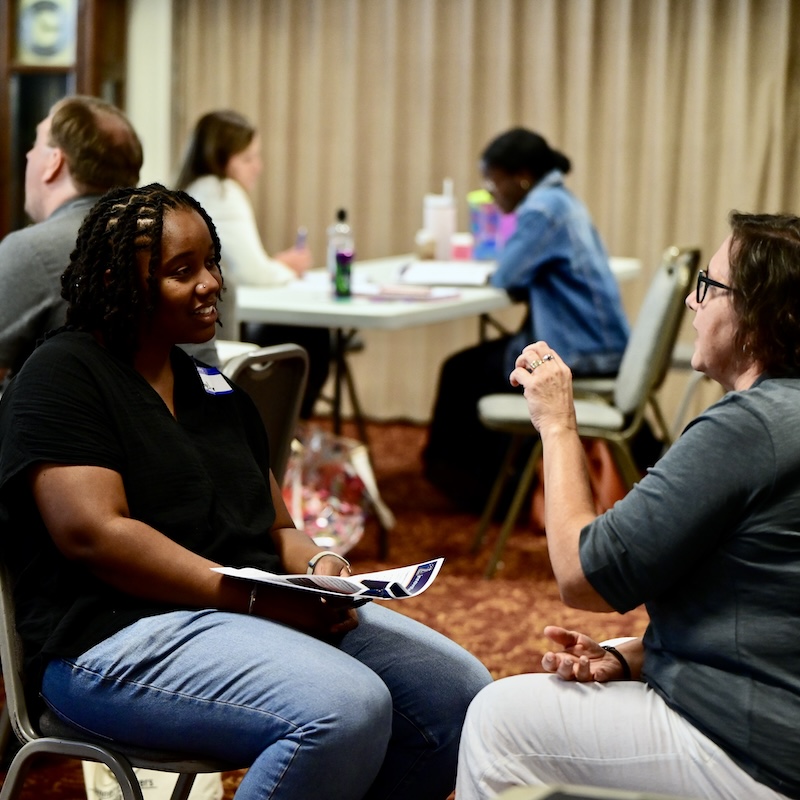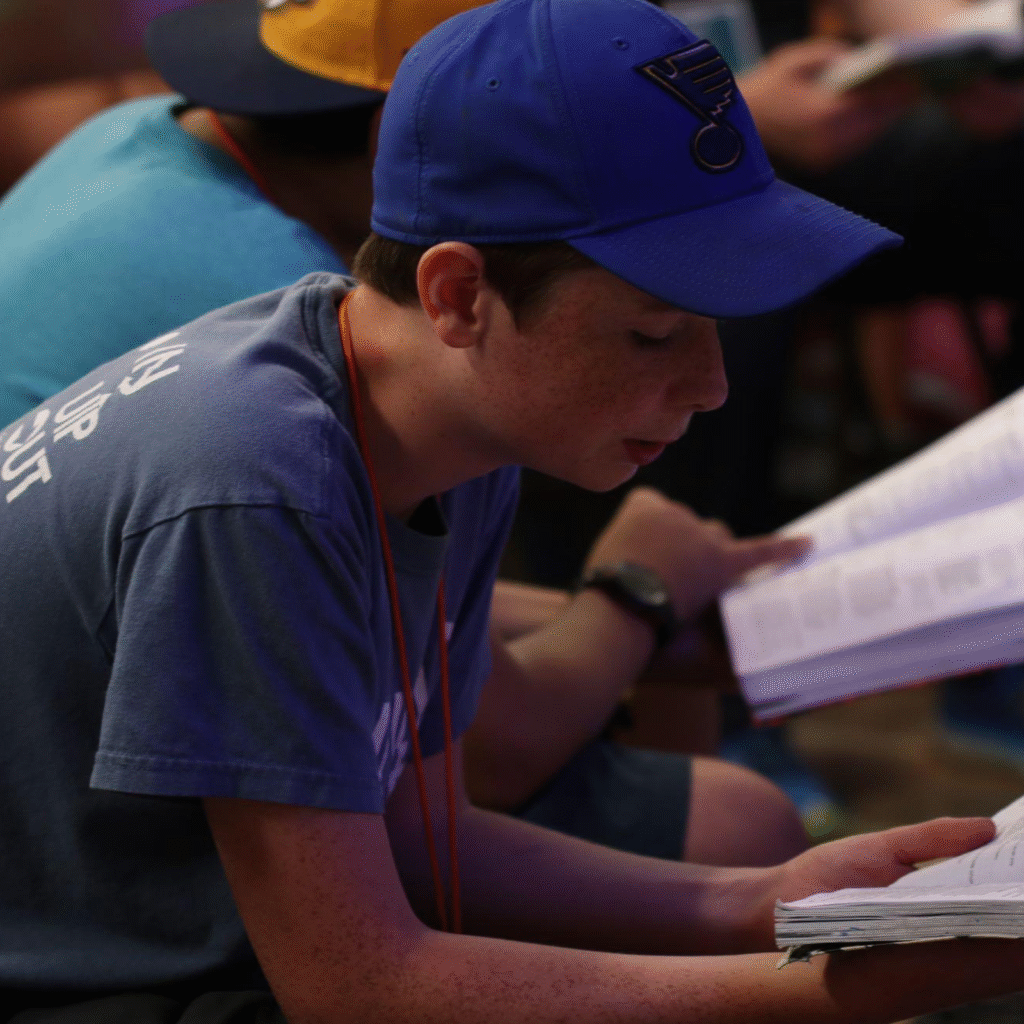
by Julie Richardson Brown
“Oh Julie…I don’t know. I don’t have anything to say that they’d care about.”
“But I’m too old for that.”
“Are you kidding? They don’t want me around. They want younger folks to take them on trips and teach their Sunday School classes.”
All three of the above answers are lifted right out of my 15 years in congregational youth ministry. And to all three I responded, “With all due respect, I beg to differ.”
I have come to believe that one of the greatest downfalls of congregational youth ministry in the United States is the lack of attention to fostering relationships between much-older and much-younger generations. So often we (incorrectly) assume that what our middle-schoolers need to guide their faith journey is an early 20-something with lots of energy and plenty of cool credential.
Said 20-something may indeed be a good role model, and we certainly need such folks in our youth ministry leadership. But there are things a Baby Boomer or a member of the Greatest Generation knows about this life that a recent college grad just doesn’t yet. They haven’t, by and large, lived long enough.
Sixty-somethings know that life doesn’t always turn out the way you want it to. They know that children go astray and divorce happens and sometimes people you can’t imagine this life without leave you and you’re left to start again. They also know that it is possible—difficult, yes, but possible—to survive, even thrive, after these things have happened. They know what it is for faith to be real, to be the very glue that has held them together in the face of unexpected loss and unimaginable heartache.
Eighty and 90-somethings have fabulous stories to tell—of things and places and people that our youth have only seen in history books. I once took a group of high school students to Washington, D.C. on a mission trip. It was just after the World War II monument had opened, and I’ve never seen anything quite like the spark in their eyes when they all realized, “Hey! That’s where Mr. Bentley fought!” when we reached a particular geographical section of the monument. “Mr. Bentley” had taught them all—every one—during their fifth grade year in Sunday school. Ask any of those youth today what they remember most about growing up at their home church and almost all of them will tell you, “Mr. Bentley.”
As is most everything in good youth ministry, it is about relationship. It is about serving as brokers, if you will, between our children and our adults, helping them find a way to reach across the years that separate them and into common ground.
With vary degrees of success and various levels of congregational support, I’ve tried to initiate this sort of relationship-fostering in youth ministry, and while it does not always work, when it does work, when a connection is made…well…gold.
Pick a Sunday school class or a small group of Baby Boomers at your church. Spend an hour talking with them about why you do youth ministry, why it matters to you, and why you think they have an important role to play in it. And then ask, “Would five of you volunteer to come spend an hour with our middle schoolers? I’ll help the youth write some starter questions, and I promise it won’t be anything too threatening. But would you come? Would you come answer their questions and share a little bit of your lives with them?”
Then talk with those middle schoolers about what you’d like to see happen. Tell them, “I think this is really important, and here’s why.” Let them set up comfortable space in the church for conversation, even let them make snacks, if they want. Coach them on speaking up and making eye contact when they ask their questions.
And then once you’ve created the physical and spiritual space, once you’ve prepared everyone as well as you can, trust that God will be at work in the questions that don’t get asked perfectly, and the answers that are sometimes choked over. Trust that even though everyone seems a wee bit uncomfortable at first, it’s okay. Something good is happening. Even if it takes everyone a while to realize it.
One of the great disservices we sometimes do our young people is making it all about them. Because it isn’t all about them. It’s about all that has come before them in this life, and all that has yet to be. It’s good for them to know, “This happened 50 years ago, and because of it, my life is a little different.”
And it is most definitely good for our adults to listen to our youth. To be reminded, “This was me once.” To be humbled by their energy and passion. To be graced by the very loudness of their lives.
At the end of the day, really, it is about doing exactly what it is we have been called to do by the God who created us. It’s about living in relationship. And, in doing so, furthering the goodness of God’s mercy at work in this world.
*****
Julie Richardson Brown is an ordained minister in the Christian Church (Disciples of Christ), and youth ministry has long been her ministry passion. She has served congregations in Georgia, Kentucky, and Indiana and has been the featured speaker at a number of church camps and conferences. She serves as Team Minister for Youth Ministry for the Christian Church in Indiana, and does some consulting with smaller congregations about congregation-led youth ministries. She writes at www.julierichardsonbrown.net.


